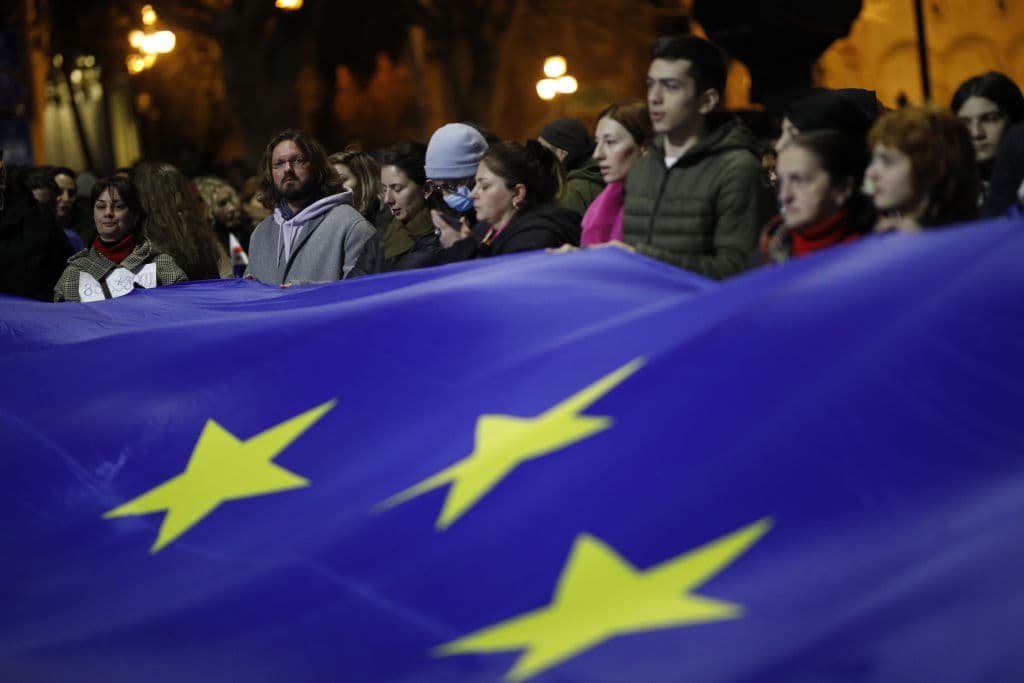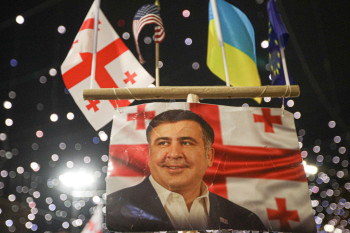Protests erupt in Georgia over Kremlin-inspired 'foreign agents' legislation

Georgian police used tear gas and water cannon to disperse thousands of protesters who rallied after a Russian-inspired “foreign agents” draft law was passed in its first reading in Georgia's parliament on March 7.
To become law, the bill has to pass second and third readings. Given the results of the initial vote and the backing by the ruling Georgian Dream party, the legislation is expected to pass the parliament.
The law on “transparency of foreign influence” would require organizations that receive over 20% of funding from overseas to register as “foreign agents.”
The Russian “foreign agent” law obliges organizations funded from abroad or—as expanded in July 2022—anyone perceived by the Kremlin to have fallen “under foreign influence” to register as a “foreign agent.” The law subjects them to strict financial audits and requires to publish all content under a disclaimer that it’s being distributed by a “foreign agent,” but is often used as a way to target groups and individuals critical of the government.
Many non-governmental organizations have criticized the legislation saying that it violates international human rights law.
“The ‘foreign agents’ bills seek to marginalize and discredit independent, foreign-funded groups and media that serve the wider public interest in Georgia,” said Hugh Williamson, Europe and Central Asia director at Human Rights Watch.
“They clearly aim to restrict critical groups and crucial media, violate Georgia’s international obligations, and would have a serious chilling effect on groups and individuals working to protect human rights, democracy, and the rule of law.”
The U.S Embassy in Georgia said that the legislation “is incompatible with the people of Georgia’s clear desire for European integration and its democratic development” and called March 7 “a dark day for Georgia’s democracy.”
In a video address from the U.S., Georgia’s President, Salome Zourabichvili, said she supports the protesters and promised to veto the controversial law on “foreign agents,” reports Mtavari.
Earlier, the Georgian parliament overruled a presidential veto on the wiretapping law, which was criticized by human rights activists.











